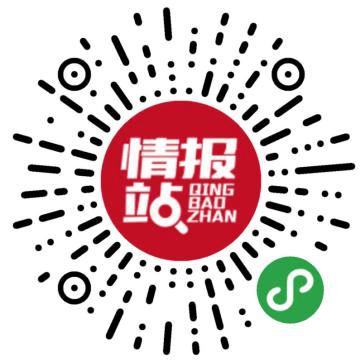How "world's supermarket" in east China expands trade via AI, IP
连世界 昨天16:26
The newly opened Yiwu Global Digital Trade Center, hailed as the sixth-generation market in Yiwu, located in east China's Zhejiang Province, is awash with wheat flower baskets, symbolizing wishes for the achievement of booming business.
"The new market has a stronger sense of technology -- everyone focuses more on building brands and IP, and they are more open to retail," said Ni Wenna, manager of a trendy toy store at the market which opened in mid-October.
Putting down an original IP blind box, she illustrated her comments via everyday tools: "For instance, the 'World Yiwu' trade model helps us grasp market trends, and the 'Xiaoshang AI video translation' tool solves communication challenges with clients from different countries."
 A vendor (R) sends her AI business card to a foreign merchant with a mobile phone at the Global Digital Trade Center in Yiwu, east China's Zhejiang Province, Oct. 14, 2025. (Xinhua/Liu Ziyi)
A vendor (R) sends her AI business card to a foreign merchant with a mobile phone at the Global Digital Trade Center in Yiwu, east China's Zhejiang Province, Oct. 14, 2025. (Xinhua/Liu Ziyi)
"Instead of memorizing scripts, a merchant can simply speak random words like '12345' into the phone, add some text, and receive a professional multilingual product video within minutes," explained Sun Lingjuan, head of fashion brand Fuduolashijia. She also noted that the center's robust cross-border infrastructure enables seamless TikTok live streaming -- "allowing us to engage with international customers online without any barriers."
In Yiwu, an increasing number of merchants are integrating technology into their businesses. Many leverage AI right from the product design phase to analyze cultural preferences across countries -- enabling them to launch more precise and suitable new products.
This tech trend stems from Yiwu's efforts to cultivate digital capabilities, such as conducting AI application talent training in e-commerce, developing the "World Yiwu" trade model for small commodities, and launching 13 AI applications to help solve obstacles in design, marketing and going global.
As a flagship project of the sixth-generation market in Yiwu, the Global Digital Trade Center is equipped with digital infrastructure like 10-gigabit optical networks and cross-border data transmission channels. Over 3,700 new merchants rely on stable cross-border networks for real-time communication and business negotiations with global clients.
Zhu Xingping, deputy general manager of the center, stated that the sixth-generation market achieves comprehensive digital and intelligent upgrades, when compared to its predecessors.
Among the more than 3,700 merchants in eight sectors like fashion jewelry, creative trendy toys and smart equipment that have settled in the center, over half possess their own brands or operate IP products. The importance of building proprietary brands and IP has become a consensus among Yiwu businesses.
After Labubu gained global popularity, Ni noticed a significant sales increase for their brand, with several products highly sought after overseas.
"For trendy toys to stand out, they need their own IP, relying on R&D and material quality," she explained. Her parent company, Zhejiang Meiyiyou Crafts Co., Ltd., has over 100 professional designers, with more than half of its products sold to Japan, the Republic of Korea (ROK) and Southeast Asia.
Yiwu toy merchants are also focusing on "edutainment" for children. At the Boran Education store, a rich variety of products ranging from human body models to traditional Chinese medicine distribution maps and "small science experiment classes" can be found.
Chen Songqing, co-founder of Zhejiang Boran Education Technology Co., Ltd., explained that the company's development journey represents a transition from homogenized competition to brand building.
"Initially, our products weren't very different from other toy manufacturers. After some years, we realized this wasn't sustainable. We had to develop something with real core competitiveness," Chen said.
Around a decade ago, the company pivoted toward the children's education sector -- embarking on a path of independent innovation and R&D, while recently exploring export options to Belt and Road countries, as well as European and American markets.
Reflecting on innovation, Chen expressed deep conviction. "Although AI R&D requires significant investment, it undoubtedly represents the future direction. Improving company efficiency also necessarily relies on AI," he remarked, while holding up a company-designed AI product and expressing hope that AI can provide emotional value and become a companion for children's growth.
As a window offering a glimpse of China's reform and opening up, and a barometer of global small commodity trade, Yiwu's market has undergone multiple rounds of transformation -- evolving from a humble roadside market into a modern international trade hub. Each upgrade has closely tracked the pulse of the times and market demand. Now, it is fully embracing the digital era with the establishment of the new digital trade center.
Within the Global Digital Trade Center, one can witness both the emergence of new products and evolving trends -- alongside the revival of traditional crafts with a fresh appeal.
The ancient craft of wool felting is being revitalized in a more fashionable and youthful manner in many stores. Inside the Coco Nepalese wool felt store, several ornaments stand out -- some charmingly ugly-cute, others vivid and expressive, each possessing unique warmth and character.
Starting from a very small space just two years ago, the company now operates three stores in Yiwu and four factories in Nepal -- providing employment for nearly 2,000 local artisans.
Liu Sen, manager of one of these stores, told Xinhua that their products are successfully sold in numerous countries including the United States, New Zealand, Japan, ROK and Germany.
"We hope every product can accompany customers to all corners of the world," Liu said, adding that their future plans include launching wool felting DIY experience courses.
"Through independent innovation, we aim to integrate this ancient craft into more people's lives -- preserving its unique warmth while blending it with modern aesthetics, serving as a bridge connecting Chinese and Nepalese culture and craftsmanship," he noted.
(Xinhua)
责任编辑:王晓莹


热门评论 我要评论 微信扫码
移动端评论
暂无评论